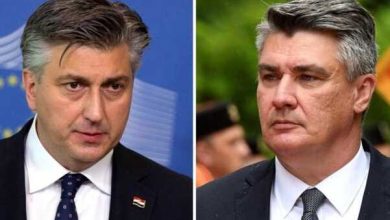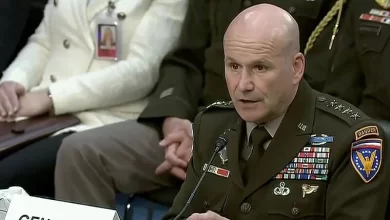
Dr. Zlatko Hadžidedić
Kome trebaju velikodržavni projekti na Balkanu?
Nedavno se u uglednom američkom časopisu Foreign Affairs pojavio tekst pod nazivom Dysfunction in the Balkans, koji potpisuje Timothy Less, i u kojem autor savjetuje novu američku Administraciju da odustane od podrške teritorijalnom integritetu država nastalih raspadom bivše Jugoslavije. Less se zalaže za novo prekrajanje granica na Balkanu, iznoseći prilično sumnjivu tezu da su se multietničke države (kao što su Bosna i Hercegovina i Makedonija) pokazale disfunkcionalnim, dok su se etnički homogene države (kao što su Hrvatska, Albanija i Srbija) navodno pokazale prosperitetnim. Pored toga, autor tvrdi i da narodi na prostoru Balkana ne žele više nikakav multietnički status quo, nego da se većinom zalažu za konačno zaokruživanje monoetničkih velikodržavnih projekata – Velike Srbije, Velike Hrvatske i Velike Albanije. Prema Lessovom nacrtu, zamišljena Velika Srbija treba da uključi Republiku Srpsku, ali i Crnu Goru, Velika Hrvatska treba da uključi budući ‘hrvatski entitet’ unutar Bosne i Hercegovine, a Velika Albanija treba da uključi Kosovo i zapadni dio Makedonije. Svo ovo prekrajanje bi, tvrdi Less, na kraju dovelo do trajnog mira. Koliko su ovi prijedlozi utemeljeni u geopolitičkoj stvarnosti Balkana, ili se pak Less pojavljuje kao glasnogovornik određenih interesa kojima je važno samo da realiziraju svoje geopolitičke projekte, koliku god cijenu pri tome morali da plate sami stanovnici Balkana?
Prije svega, pogledajmo ko je autor datog teksta. Kako kažu oficijelne biografije, Timothy Less je vodio britanski konzulat u Banjaluci, a bio je i politički sekretar britanske ambasade u Skopju. Sada vodi tzv. konsultantsku agenciju pod nazivom Nova Europa, te je zvanično izašao iz diplomatske službe. Ono što svakako bode oči jeste to da je djelovao upravo u državama koje bi, prema njegovoj ‘analizi’, bile najpoželjnije za raspad –Bosni i Hercegovini i Makedoniji. Treba se prisjetiti da je britanska vanjska politika još od 1990. povremeno, ali prilično nedvosmisleno, zagovarala stvaranje zamišljenih etničkih ‘velikih država’ – Velike Srbije, Velike Hrvatske i Velike Albanije – kao navodnih puteva ka ‘trajnoj stabilnosti’ na Balkanu.
U tom svjetlu, teško se oteti utisku da je dotični diplomata u Banjaluci i Skopju vjerovatno djelovao kao neformalni savjetodavac upravo onih političkih snaga, kao što su na primjer srpski i albanski separatisti, koje bi trebalo da najsnažnije djeluju u pravcu realizacije takvih velikodržavnih projekata. A otkako je zvanično izašao iz diplomatske službe, Timothy Less redovito objavljuje tekstove u kojima ‘predviđa’, to jest, priziva nove etničke ratove i etničke podjele na Balkanu. U članku u Foreign Affairs, on sada nastoji uvjeriti novu američku Administraciju da bi trebalo da i ona prihvati politiku zaokruživanja velikodržavnih projekata na Balkanu. Ironično, sada Less to čini ne bi li se navodno spriječili svi ti silni ratovi koje upravo on godinama najavljuje, to jest, priziva i zagovara. Očito, i prizivanje etničkih sukoba u cilju realizacije velikodržavnih projekata na Balkanu, a zatim i zalaganje za zaokruživanje ovih projekata kako bi se u regionu navodno vratila stabilnost, predstavljaju čiste geopolitičke projekcije jednog dijela britanskog vanjskopolitičkog establishmenta, pri čemu ‘nezavisni eksperti’ poput Lessa imaju ulogu da uvjere svijet da su ove projekcije ‘jedino razumno rješenje’.
No, u mjeri u kojoj je on sam ‘nezavisan’, i njegova ‘rješenja’ su ‘razumna’. Na primjer, Less tvrdi da su ‘neriješena nacionalna pitanja’ glavna prepreka stabilnosti Balkana. Međutim, već na prvi pogled jasno je da je u pitanju prosta zamjena teza. Sama ideja stvaranja zaokruženih etnonacionalnih država jeste ideja koja je svuda u svijetu uvijek vodila samo u pravcu stvaranja nestabilnosti, jer zaokružene etnonacionalne teritorije nije moguće stvoriti bez primjene najgoreg fizičkog nasilja, dakle, bez ratova. Strategija ‘rješavanja nacionalnog pitanja’ je na Balkanu, ali i drugdje u svijetu, uvijek vodila jedino permanentnoj nestabilnosti, a nikako konačnoj stabilnosti. Što je posebno interesantno, pobjednici u Prvom svjetskom ratu su na Mirovnoj konferenciji u Versaillesu, prema tada promoviranom ‘principu nacionalnog samoodređenja’, zagovarali stvaranje jedinstvene ‘nacionalne države Južnih Slavena’. Nekih sedamdesetak godina kasnije, iste sile prihvatile su, a ponekad i zagovarale, raspad te iste južnoslavenske države u ime nezavisnosti i samoodređenja nekih drugih nacionalnih država, s obzirom da su bivše jugoslavenske republike, sa izuzetkom Bosne i Hercegovine, bile u osnovi konstituirane kao nacionalne države. A sada se njihovi glasnogovornici, kao što je Less, zalažu za raspade većeg dijela ovih država, u ime zaokruživanja etnički čistih velikodržavnih projekata – naravno, opet u ime ‘nacionalnog samoodređenja’. Dakle, ‘nacionalno pitanje’ je očito jedna potpuno arbitrarna kategorija, promjenljiva u ovisnosti o trenutnim geopolitičkim interesima.
Naravno, interesima velikih, a ne interesima onih malih čije ‘nacionalno pitanje’ se tu navodno ‘rješava’.
No, prije nego što odbacimo Lessovu ‘analizu’ kao puki spisak autorovih želja, zapitajmo se koliki je značaj Foreign Affairs u međunarodnim političkim krugovima, i koliko ovaj tekst zaista može utjecati na postupke nove američke Administracije? Foreign Affairs je glasilo tijela koje se zove Council on Foreign Relations (CFR), a njegovo članstvo od početka su činili najugledniji političari, državni sekretari, direktori CIA, bankari, profesori, pravnici i najuglednije medijske ličnosti. Ovo tijelo je 1921. godine bilo zamišljeno kao zajednički anglo-američki projekt, kao otjelovljenje tzv. ‘specijalnog odnosa’ između SAD i Velike Britanije, koji je kreiran tokom Prvog svjetskog rata i koji se održao do današnjih dana. U tom pogledu, teško da na svijetu postoji časopis sa većim političkim utjecajem, usporedivim jedino sa utjecajem koji ima sam CFR. Stoga se geopolitički manifest koji je potpisao Timothy Less mora uzeti sa najvećom mogućom ozbiljnošću, jer on sigurno odražava interese određenih utjecajnih krugova unutar anglo-američkog vanjskopolitičkog establishmenta. S obzirom na količinu javne podrške koju je Hillary Clinton uživala tokom svoje predsjedničke kampanje od strane ljudi okupljenih oko časopisa Foreign Affairs, razumno je pretpostaviti da bi ona najvjerovatnije bez oklijevanja prihvatila ovaj Lessov ‘dobronamjerni’ savjet. No, mnogo manje je vjerovatno da će novoizabrani predsjednik SAD-a Donald Trump, koji nije uživao ni najmanju podršku navedenog kruga ljudi, biti naivan i prihvatiti strategiju zaokruživanja velikodržavnih projekata prezentiranu u Foreign Affairs kao svoju vlastitu strategiju, i kao viziju koja može doprinijeti miru u bilo kojem dijelu svijeta. Međutim, ukoliko bi do toga došlo, čekaju nas ne samo novi etnički sukobi na Balkanu, nego i trajna nestabilnost u ostatku svijeta.
IFIMES
__________________
Dr. Zlatko Hadžidedić
Brexit – Pakistanization finally comes home
(Who Needs Greater State Projects in the Balkans?)
Ever since the end of the WWI, and especially since the end of the WWII, the UK official foreign policy line was nearly always the same, imperial – partition and division. Divide/atomise and rule (divide at impere) ! Was it Asia, Latin America, Africa, Ukraine, Balkans or the Middle East – Pakistanization was the UK classical (colonial) concept, action and answer ! With the Brexit at sight, seems that the Pakistanization (finally) came home.
However, certain destructive UK quasi-intellectual circles are trying to postpone inevitable. Following lines are about that ill-fated attempt.
**********
Foreign Affairs, a renowned American foreign policy journal, recently published an article under the title Dysfunction in the Balkans, written by Timothy Less. In this article the author offers his advice to the new American Administration, suggesting it to abandon the policy of support to the territorial integrity of the states created in the process of dissolution of the former Yugoslavia. Timothy Less advocates a total redesign of the existing state boundaries in the Balkans, on the basis of a rather problematic claim that the multiethnic states in the Balkans (such as Bosnia-Herzegovina and Macedonia) proved to be dysfunctional, whereas the ethnically homogenous states (such as Croatia, Albania and Croatia) proved to be prosperous. Also, the author claims that the peoples in the Balkans, having lost any enthusiasm for the multiethnic status quo, predominantly strive to finally accomplish the imagined monoethnic greater state projects – so-called Greater Serbia, Greater Croatia and Greater Albania. According to Less’ design, the imagined Greater Serbia should embrace the existing Serb entity in Bosnia-Herzegovina (that is, 49% of the Bosnian territory), but also the entire internationally recognized Republic of Montenegro; the Greater Croatia should embrace a future Croatian entity in Bosnia-Herzegovina; the Greater Albania should embrace both Kosovo and the western part of Macedonia. All these territorial redesigns, claims Less, would eventually bring about a lasting peace and stability in the region. The question is, to what extent these proposals can be seen as founded in the geopolitical reality of the Balkans, or the author only acts as a spokesperson for particular interest groups whose aim is to accomplish their geopolitical projects, regardless of the price paid by the peoples of the Balkans?
First, let us take a look at the author's professional background. According to his official biographies, Timothy Less was the head of the British diplomatic office in Banja Luka, the capital of the Serb entity in Bosnia-Herzegovina. He was also the political secretary of the British Embassy in Skopje, Macedonia. Now he runs a consulting agency called Nova Europa, so he has officially left the British diplomatic service. Thus he served as a diplomat exactly in those two states which are, according to his analysis, the most desirable candidates for dissolution. If one remembers that the British foreign policy, since the 1990s, has occassionally but unambiguously advocated the creation of the imagined monoethnic greater states – Greater Serbia, Greater Croatia and Greater Albania – as an alleged path towards lasting stability in the Balkans, it is difficult to escape the impression that this diplomat, having served in Banja Luka and Skopje, probably acted as an informal adviser to those very political forces, such as the Serbian and Albanian separatists, who should be the most active participants in the realization of those greater state projects. And ever since he left the diplomatic service, Timothy Less has regularly published articles in which he ‘foresees’, that is, invites new ethnic conflicts and ethnic divisions in the Balkans. In the Foreign Affairs article now he attempts to persuade the new American Administration that it should also adopt the policy of completion of the greater state projects in the region. Ironically, Less now makes that in order to prevent all those ethnic wars that he himself has been announcing, that is, inviting and advocating. Obviously, the long-term strategy of inviting ethnic conflicts in order to implement the greater state projects in the Balkans, together with the current strategy of advocating their completion in order to allegedly bring the stability back to the region, must be perceived as a serious geopolitical projection designed by one relatively influential part of the British foreign policy establishment. In that context, so-called ‘independent experts’, such as Timothy Less, have a task to persuade the world that such projections can be ‘the only reasonable solution’.
Still, it is clear that he is as independent as his solutions are reasonable. For example, Less claims that multiethnic states, in which the aforementioned national projects have remained unaccomplished, are the main impediments to stability in the Balkans. However, the historical reality has demonstrated that this claim is a simple red herring fallacy. For, the very concept of completed ethnonational states is a concept that has only led towards perpetual instability wherever applied, because such ethnonational territories cannot be created without violence, that is, without ethnic cleansing and wars. The strategy of ‘solving national issues’ has always led, both in the Balkans and elsewhere, only towards permanent instability, never towards final stability. What is particularly interesting, in accordance with the principle of national self-determination promoted at the Peace Conference in Versailles the winners in the World War I advocated the creation of the common national state of the Southern Slavs. Some seventy years later, the same great powers accepted, and sometimes advocated, the dissolution of that very state in the name of self-determination of some other national states, since all the former Yugoslav republics, with the exception of Bosnia-Herzegovina, had been constituted as national states. And now, their spokespersons, like Less, advocate a dissolution of most of these states in order to complete some greater state projects – of course, again in the name of national self-determination. Looking from that perspective, one can only conclude that national self-determination, as much as the nation itself, is a totally arbitrary category, changeable in accordance with current geopolitical interests – of course, the interests of the big ones, not of those small ones whose ‘problem of national self-determination’ is allegedly being solved.
Since we cannot reject Less’ proposal as a mere list of the author's wishes and desires, let us ask ourselves what is the true relevance of Foreign Affairs in international political circles and how much this article can really influence future actions of the new American Administration. Foreign Affairs is a publication sposored by the body called the Council on Foreign Relations (CFR), whose membership from the very beginning consisted of senior politicians, secretaries of state, directors of CIA, bankers, academics, lawyers and senior media figures. This body was founded in 1921 as a common Anglo-American project, conceived as the embodiment of the so-called special relationship between the United States and Great Britain, which had been created during the World War I and has remained present to the present day. In this sense, there can hardly be a journal in the entire world with greater political influence, comparable only with the influence of the CFR itself. Therefore, the geopolitical manifesto written by Timothy Less must be taken with ultimate seriousness, because it certainly reflects the interests of some influential circles within the Anglo-American foreign policy establishment. Bearing in mind all the public support that Hillary Clinton enjoyed during her presidential campaign from the people gathered around Foreign Affairs, it is reasonable to assume that she would probably adopt Less’ suggestions. However, it is less likely that the newly-elected President of the United States, Donald Trump, who did not enjoy a slightest support from these circles, will not be so naive as to adopt the strategy of completion of greater state projects presented in Foreign Affairs as his own strategy and a vision that can contribute to peace and stability in any part of the world. However, if that happens, we shall face not only new ethnic conflicts in the Balkans, but also a lasting instability in the rest of the world.
Graduate of the London School of Economics, prof. Zlatko Hadžidedić is a prominent thinker, prolific author of numerous books, and indispensable political figure of the former Yugoslav socio-political space in 1990s, 2000s and 2010s.














